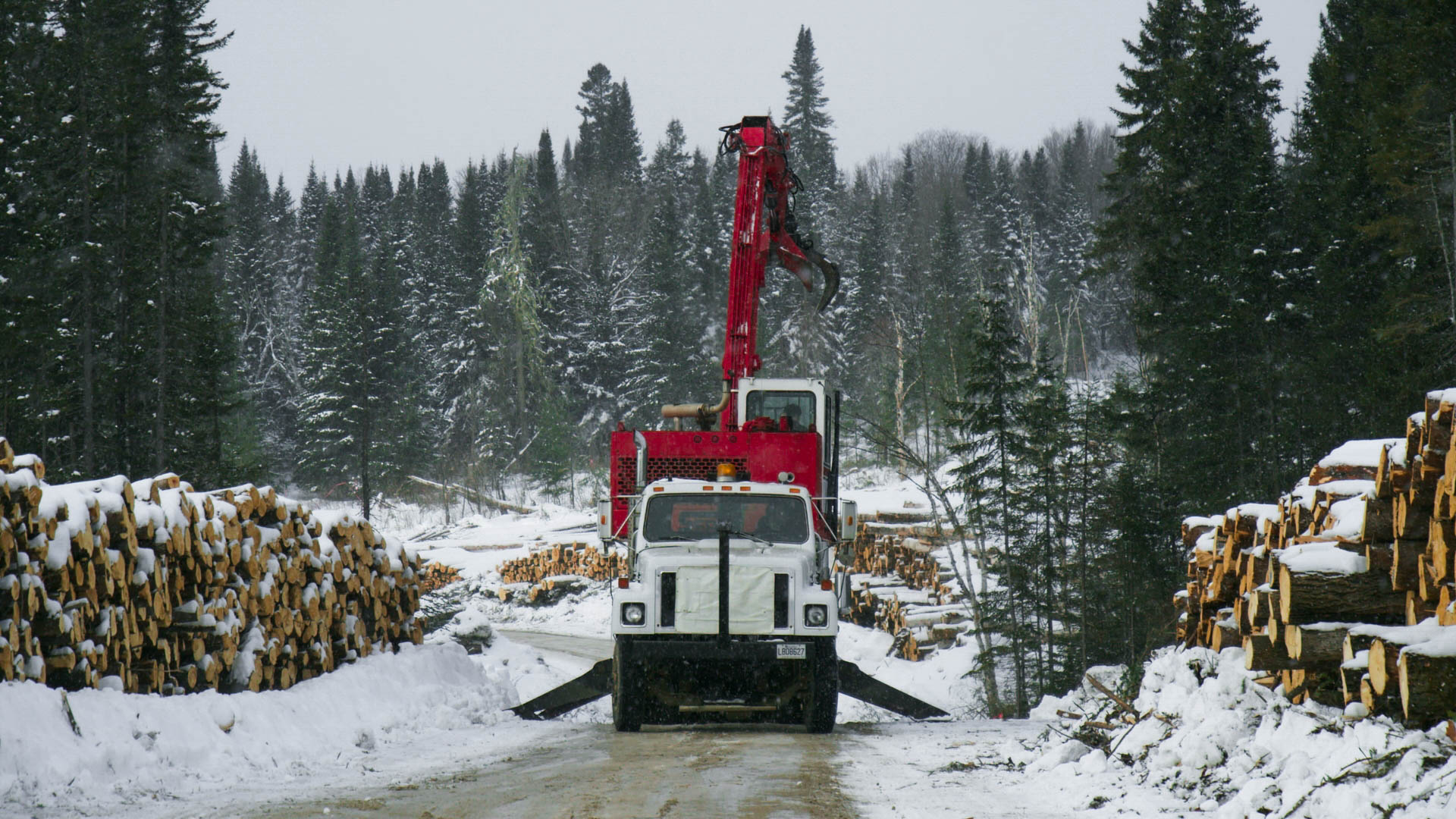On March 20th, over a year after the Atikamekw of Manawan blockaded the sixtieth kilometre of a logging road in their territory, the community forced the St-Michel Sawmill of the Champoux investor group to remove all of the company’s logging equipment from the road. Families of the Atikamekw community of Wemotaci carried out a similar action by forcing Rémabec, the largest forestry company in Québec, to remove their logging equipment after the community set up blockades in their own territory.
These new developments in the Nitaskinan – the traditional territory of the Atikamekw – are rooted in a logging moratorium declared by the Atikamekw of Manawan in November 2021. This moratorium was supported by the vast majority of territorial chiefs, the Manawan band council, and other Atikamekw communities, yet the government continued to hand out logging permits which forced the community’s hand. North Star spoke with Gérald Dubé, whose family has been active in the blockade since its beginning.
Since North Star’s last coverage of the Km 60 movement in March 2022, the movement has grown and spread to other communities, forming a common front in defence of the Nitaskinan. These communities have seen their so-called “harmonization agreements” with the government exploited and abused by massive forestry monopolies like Résolu, the third largest pulp and paper company in North America, and the eighth largest in the world.
In Wemotaci, after multiple abuses of their logging agreements, the Petiquay family set-up three blockades on a logging road in their territory. Despite an injunction served by Rémabec, the family maintained the blockades with help of other families and communities. “We also had the support of Manawan… Because the territory is not just that of Wemotaci, it is the territory of the entire Atikamekw nation, it also concerns the people of Manawan and Opitciwan.” explains Dave Petiquay, spokesperson of the family.
While Rémabec posted an annual revenue of $277 million in 2021, the unemployment rate in Wemotaci sits at 30%, and 25% in Manawan – both more than 6x the provincial average. The contradiction between the wealth extracted from Atikamekw lands, versus the deep impoverishment of its people, was a key factor that pushed them to create the movement. What began as a dispute over a patch of forest, has grown into a struggle for the larger territorial rights of the Atikamekw and their right to free development on the Nitaskinan.
When asked about the goal of the Km 60 movement, Dubé said: “We want to create one nation, one territory. We don’t want separate territories. They [the government] have succeeded in dividing us, they have divided us for a long time. They still divide us in the community. It’s the same in Wemotaci, they divide us by giving us envelopes [of money]. So that’s what we’re in the process of forming, a unified movement.”


Be part of the conversation!
Only subscribers can comment. Subscribe to The North Star to join the conversation under our articles with our journalists and fellow community members. If you’re already subscribed, log in.